ARTICLE AD BOX

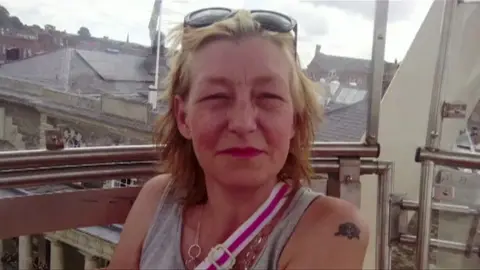 Family handout
Family handout
Dawn Sturgess, 44, did not know the perfume she was spraying herself with was a lethal nerve agent
Former Prime Minister Theresa May says justice is “highly unlikely to happen” for the people affected by the Salisbury Novichok attack.
Rather she hopes the family of Wiltshire woman Dawn Sturgess, who died after coming into contact with the Russian nerve agent in 2018, “will take some comfort” from the forthcoming independent inquiry into her death.
Baroness May has been speaking to a new BBC podcast on the Salisbury Poisonings which will be covering the inquiry.
“I would hope by the end of it the family and friends of Dawn Sturgess feel it has got to the truth,” she said.
Theresa May: "I hope family and friends of Dawn Sturgess will feel it got to the truth"
But the inquiry only has a limited scope and it is very unlikely the members of the Russian intelligence agency thought to be involved will ever be put on trial.
“Closure to all the people affected would only finally come with justice, and that justice is highly unlikely to happen," Baroness May added.
Ms Sturgess, 44, a mother of three, died in July 2018 after being poisoned with the chemical weapon, which had been disguised as designer perfume.
The bottle is believed to have been discarded by Russian agents, who police say targeted former Russian spy Sergei Skripal, who was living in Salisbury in March 2018.

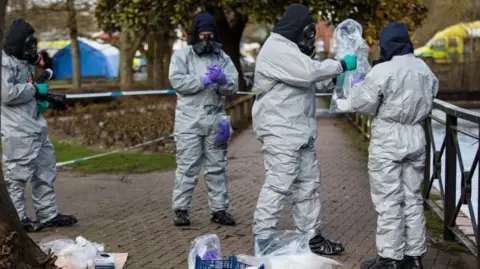 Getty Images
Getty Images
A large area of Salisbury city centre was put into lockdown following the chemical agent attack
Mr Skripal, his daughter Yulia Skripal and Wiltshire Police officer Det Sgt Nick Bailey all became critically ill after the original incident, but later recovered.
Ms Sturgess’s partner, Charlie Rowley, had found the perfume bottle and given it to her without knowing what it contained.
Baroness May, who was prime minister at the time, said she felt “huge sadness” about Ms Sturgess' death.
But, based on the quantity of Novichok discovered, said she believed the death toll "could have been so many more" and accused the Russians of "utter recklessness".
"You felt they just didn't care about anything," she told the BBC's Crime Next Door: Salisbury Poisonings podcast.

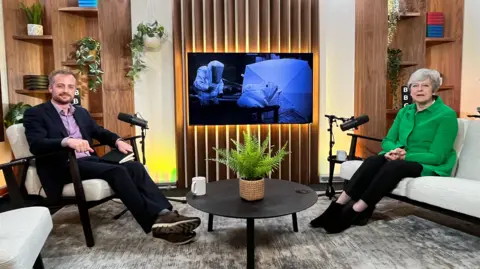
The former prime minister has been speaking to the BBC's Crime Next Door: Salisbury Poisonings podcast




Within a week of the 2018 attack on the Skripals, the UK government pointed the finger at the Russian government – later convincing dozens of countries to follow the UK’s lead in expelling Russian intelligence officers on diplomatic passports.
“We had to be certain of our ground,” said Baroness May, describing the “pin-drop” silence as she stood in the House of Commons to accuse Russia.
“It's why we took our time” to establish the facts and avoid “rash declarations," she added.
“In today’s world this is one of the things that can be quite difficult. There is this genuine desire from the public to know everything that’s happening and to hear about things almost immediately.”
But she said the UK should have been firmer in its response to the earlier murder of another former Russian spy, Alexander Litvinenko, in London in 2006.

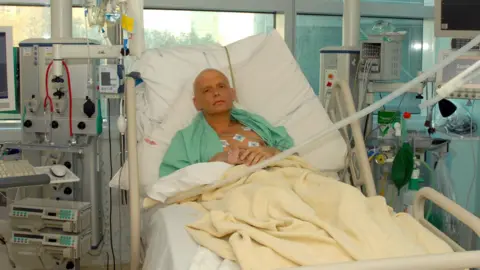 Getty Images
Getty Images
Alexander Litvinenko was photographed at the intensive care unit of University College Hospital in London on 20 November 2006, he died on 23 November
The 43-year-old was killed by radioactive polonium-210, believed to have been added to a cup of tea.
A public inquiry into the killing concluded Russian President Vladimir Putin had likely approved the assassination.
Reflecting on those events, Baroness May said it had taken “some considerable time” to establish the blame.
“I think we probably should have taken a stronger response to that at the time and given a clearer message to Russia," she said.
The Sturgess Inquiry
The original inquest into Ms Sturgess’ death was opened in 2021, but was converted to a public inquiry to allow highly classified evidence to be heard.
More than six years after her death, that inquiry is due to begin hearing evidence on Monday 14 October.
It aims to establish the circumstances around the death of Ms Sturgess.
The first week of hearings will take place in Salisbury at the city’s Guildhall, before moving to the International Dispute Resolution Centre in London on Monday 28 October.

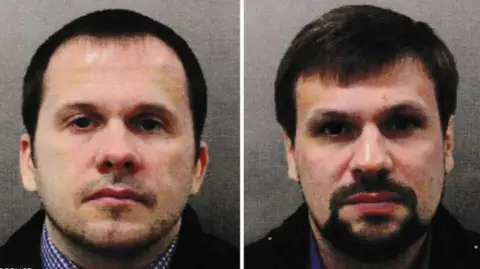 Met Police
Met Police
In 2018 police released CCTV images of two men using the aliases Alexander Petrov (left) and Ruslan Boshirov
While it is tasked with hearing all the evidence to establish the truth of what happened to Ms Sturgess, the public inquiry cannot determine guilt or put anyone on trial.
Two Russian nationals, who arrived in the UK under the aliases Alexander Petrov and Ruslan Boshirov, were named by UK counter-terrorism police as suspects in September 2018. A third suspect, Sergey Fedotov, was named by police in February 2019.
All three men are thought to be members of the GRU, the Russian intelligence agency.
An international arrest warrant has been issued but unless they leave Russia it is unlikely they will ever stand trial – as the Russian constitution does not allow the extradition of its citizens.
The Russian government has always denied involvement in the incident. Its foreign ministry has described the inquiry as a "circus".

 1 month ago
16
1 month ago
16
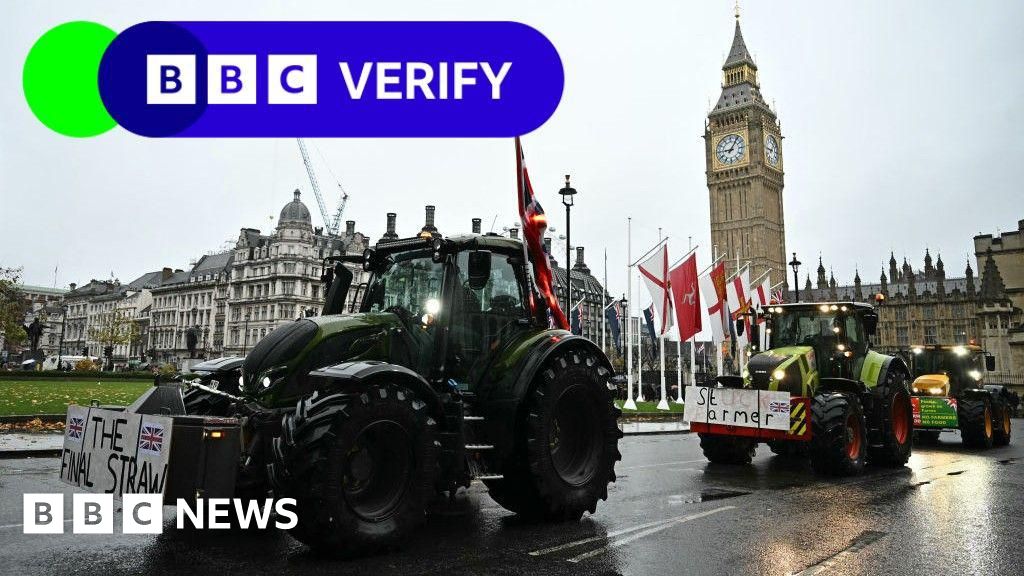
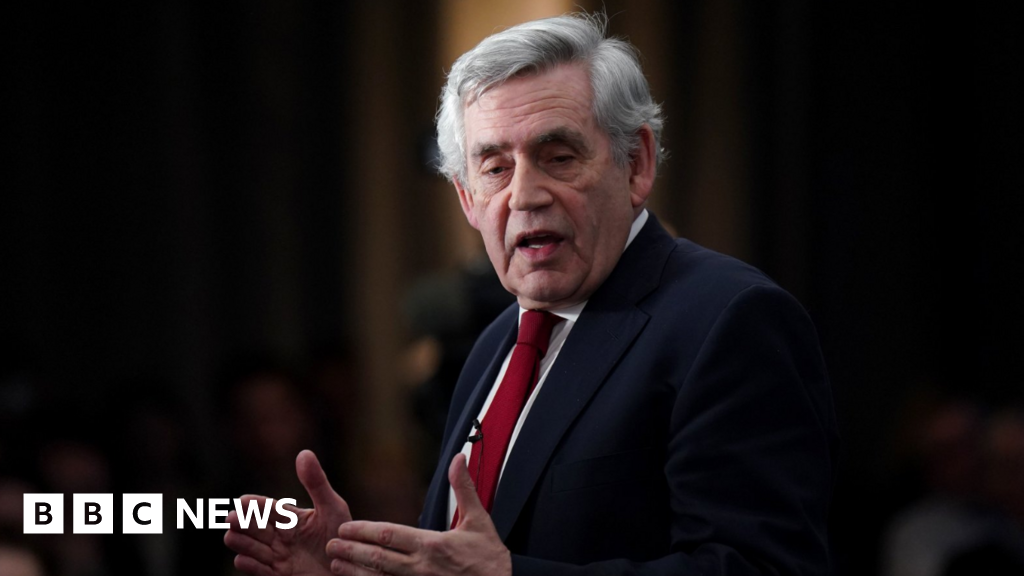
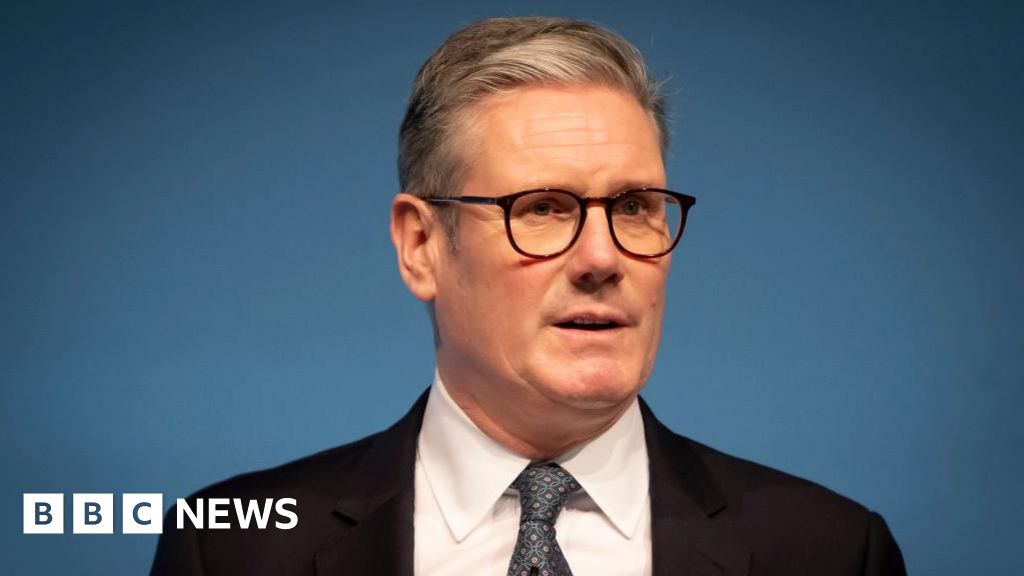





 English (US)
English (US)